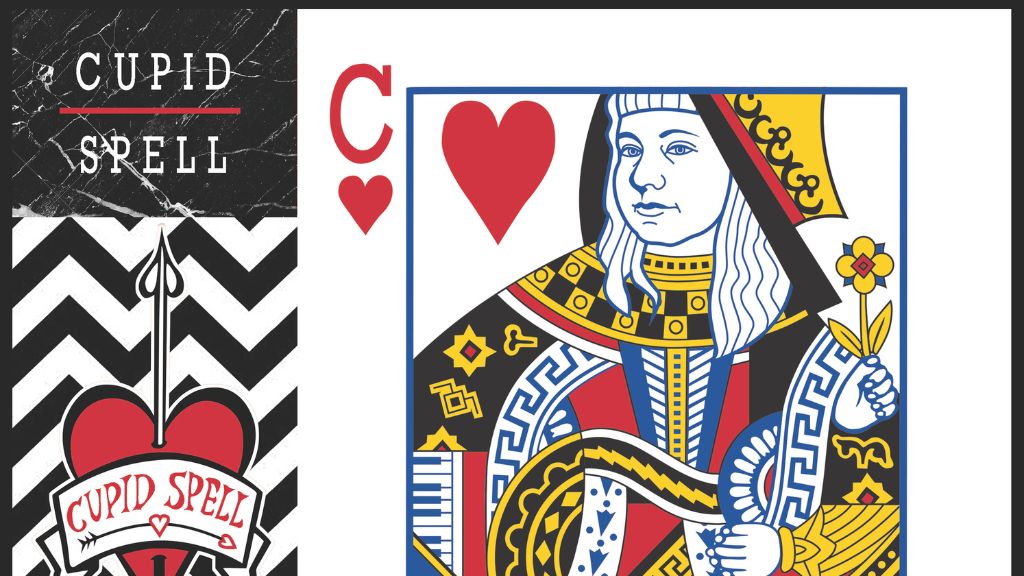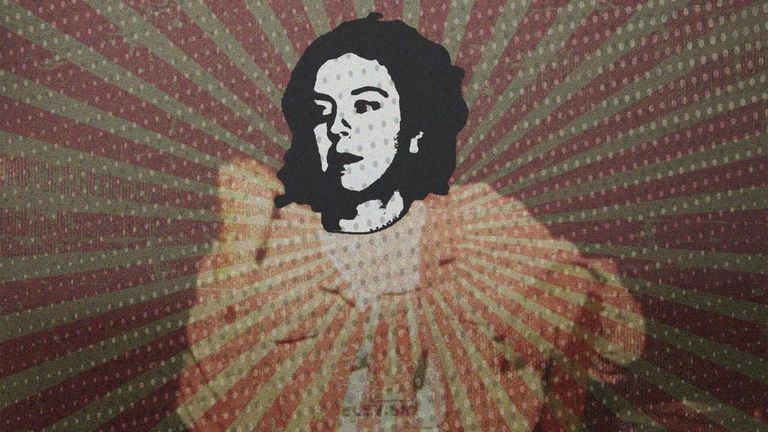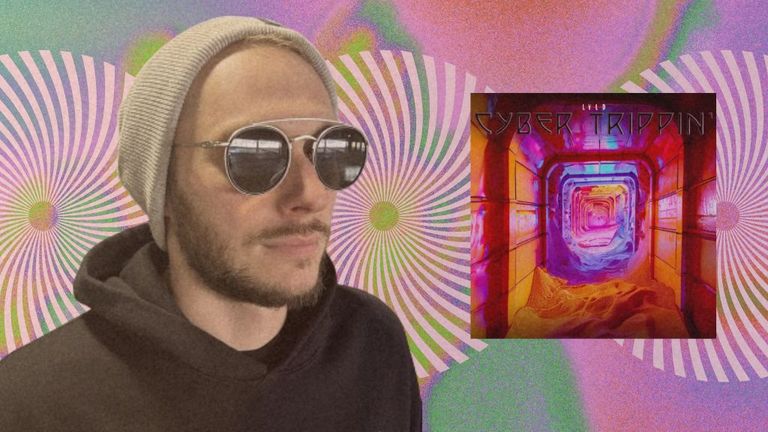Cupid Spell and the Duality Magic: A Peek Backstage at the Dream Logic of "Look Alike"

There is a properly oddly compelling nature to Cupid Spell's first single Look Alike. The song seems to have wandered out of the Red Room of Twin Peaks, its synths aglow like neon in mist, its vocals walking the blade's edge between knowing and terror. It's a synth-pop daydream in dark hues constructed in homage to David Lynch, but what keeps it from succeeding is the manner in which it glides so easily into his world of contradictions, where beauty and terror, lust and fear, exist in the same pale light.
Cupid Spell, the duo of Josh Kreuzman and Mandy Buffington, was formed earlier this year in Bloomington, Indiana. Josh, familiar to darkwave enthusiasts as solo artist Twice Dark, and Mandy, author and creative partner, collided with mutual fascination with love, loss, and the bizarre poetry in between. They collided on a whim, responding to a call to produce an original work for the tenth issue of Lover's Eye Press, a folio dedicated to the surrealist genius of Lynch. The result is Look Alike, a song that doesn’t simply pay homage to its inspiration but extends his world through sound, as though Badalamenti’s dreamlike chords and Julee Cruise’s spectral melodies were filtered through a new dimension.
The track opens like a mirage. A pulsing synth line shimmers in the distance, its rhythm patient and hypnotic. As it solidifies, voice-sampled from Lynch's Number of the Day series wafts in on the wind like an incantation, situating in his distinctive voice. The song wraps around it, Kreuzman and Buffington building a sound world of dark harmonies and hushed confession, sketching motifs of duality, duplicity, and the unnerving notion that we all contain two selves. A tribute and a question: if we are all mirrors, whose reflection?
The track possesses a filmic stillness. You can almost see the pan of the camera over misty pine forests or the motionless beam of a motel sign in the middle of the night. Kreuzman's synth work makes use of the creepier romanticism of Angelo Badalamenti's soundtracks, but the sound does possess a very clear modernity, contained within a minimalist beat that takes from darkwave and contemporary synth-pop equally. Buffington's is a sigh on the pillow of fantasy, distant yet anchored in a tender despair that speaks both of nowness and remoteness. They create a sound world haunted not by specters, but by remembrance and possibility.
Look Alike is remarkable not simply because of its literal visual verisimilitude but also because of its metaphysical slant. The work is not simply borrowing from Lynch's preoccupation with the double; it abides there. Its melody glides in opposing directions simultaneously, seductive and menacing, human and mechanical. There is tactileness to its sound, yet also a keening edge of division, as if the record itself were posing the question of whether it is ever possible for authenticity to exist within such an image-overloaded and copycat world.
While the roots of Cupid Spell are in this one, there is already an air of evolution. There has been some sketching out of future content by Kreuzman and Buffington, and a string of singles as far ahead as 2025 and 2026. If Look Alike is anything to go by, then Cupid Spell is keen on creating a mood, a mood that stays long after the last note disappears.
Ultimately, Look Alike is a record scored to dream sequences. It's darkly romantic and cinematic and quietly knowing, asking listeners to linger in the threshold room between fantasy and realization. You can approach it as a David Lynch fan, a synth-pop aficionado, or just a fan of songs that can't be solved easily, but Cupid Spell is a thing of brutal beauty that makes you squirm. When the last remnants of Lynch's voice, sampled into the song, disappear into nothing, there is only one thing left to ask: when you look into the mirror of this song, who looks back?


